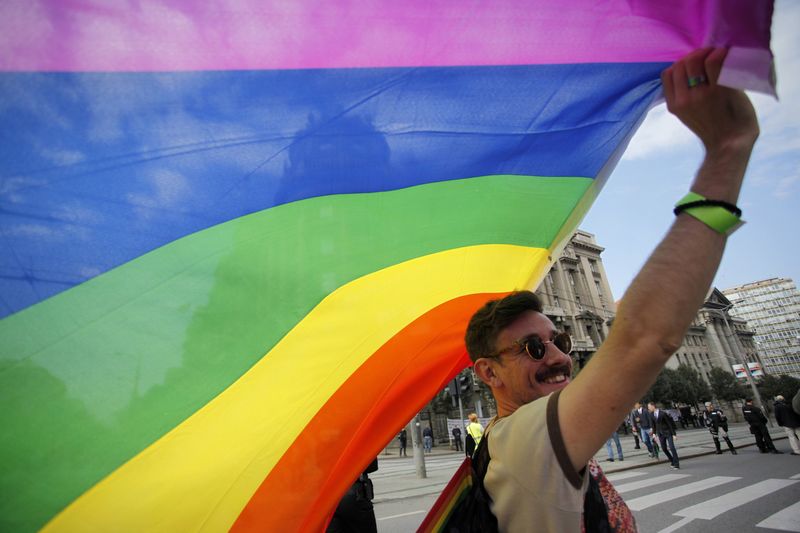By Alana Schetzer
MELBOURNE, Nov 16 (Reuters) - Australian lawmakers on Thursday vowed to push through laws legalising same-sex marriage by early December, after a national survey found the majority of Australians favoured the move.
Both Prime Minister Malcolm Turnbull's Liberal-National coalition government and the main opposition Labor Party said they were aiming to pass the law through parliament by Dec. 7.
That timeline was even earlier than the Christmas deadline named by Turnbull on Wednesday after the country's statistics agency reported that 61.6 percent of voters surveyed favoured marriage equality, with 38.4 percent against. was rushed into the national parliament's upper house Senate late on Wednesday, even as colourful celebrations in the major cities continued and congratulations rolled in from international supporters.
If the legislation passes as expected, Australia will become the 26th nation to legalise same-sex marriage, a watershed for a country where it was still illegal in some states to engage in homosexual activity until 1997.
The legislation faces some opposition from conservative lawmakers in the coalition, who have pledged to introduce amendments to protect religious freedom that would allow discrimination against same-sex couples.
Attorney-General George Brandis moved two amendments on Wednesday, seeking to extend protection to civil celebrants to refuse to officiate same-sex weddings.
"They'll move amendments and some of them will be accepted," Turnbull told a radio station on Thursday. "We're cracking (getting) on with it."
A rival bill proposed by the conservative faction that would have included widespread protections for religious objectors, including florists, bakers and musicians, to refuse service to same-sex couples was withdrawn after being widely condemned.
Full debate on the bill, which was introduced by Senator Dean Smith, a member of the coalition and the country's first openly gay lawmaker, is scheduled to begin on Nov. 27.
Almost 80 percent of the country's eligible voters took part in the voluntary public survey - a higher voter turnout than Britain's Brexit vote and Ireland's same-sex marriage referendum.
